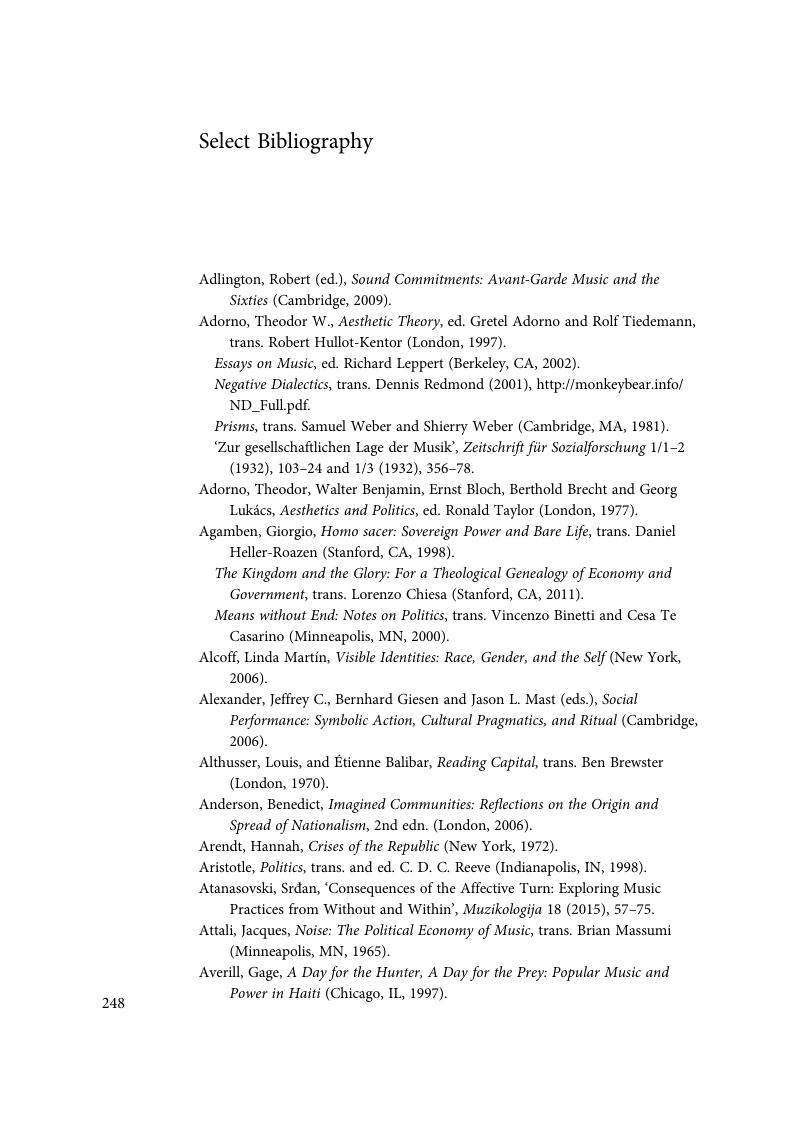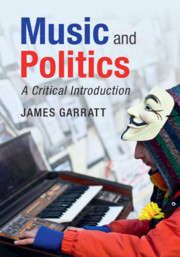Book contents
- Music and Politics
- Music and Politics
- Copyright page
- Dedication
- Contents
- Figures
- Boxes
- Preface
- 1 Music and Politics
- 2 Power and Counterpower
- 3 History, Ideology and the Politics of Context
- 4 Propaganda, Ritual and Sovereign Power
- 5 Performing Protest
- 6 Critique, Subversion and Negation
- 7 Nationalism, Racism and Fascism
- Postscript
- Notes
- Select Bibliography
- Index
- References
Select Bibliography
Published online by Cambridge University Press: 01 November 2018
- Music and Politics
- Music and Politics
- Copyright page
- Dedication
- Contents
- Figures
- Boxes
- Preface
- 1 Music and Politics
- 2 Power and Counterpower
- 3 History, Ideology and the Politics of Context
- 4 Propaganda, Ritual and Sovereign Power
- 5 Performing Protest
- 6 Critique, Subversion and Negation
- 7 Nationalism, Racism and Fascism
- Postscript
- Notes
- Select Bibliography
- Index
- References
Summary

- Type
- Chapter
- Information
- Music and PoliticsA Critical Introduction, pp. 248 - 262Publisher: Cambridge University PressPrint publication year: 2018



